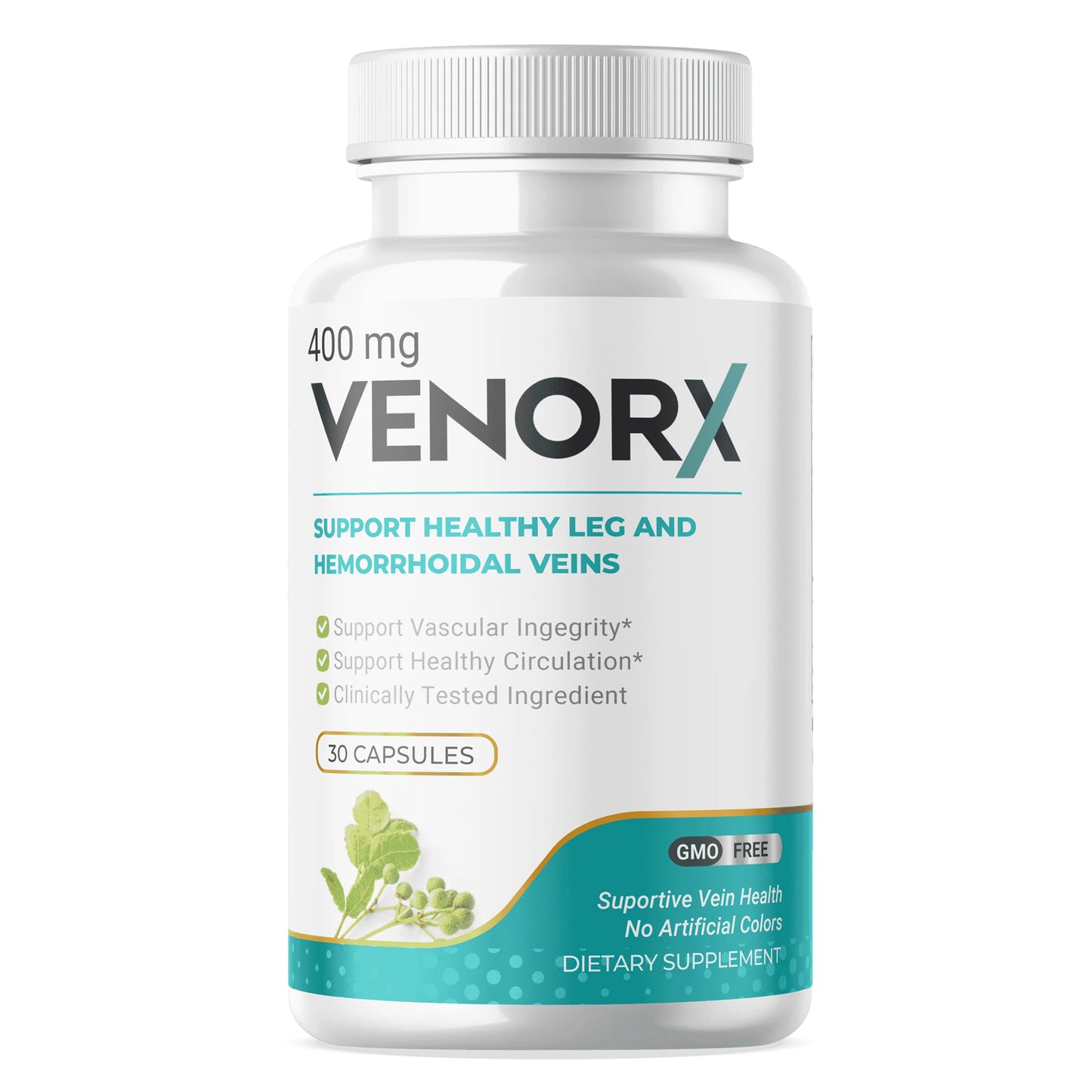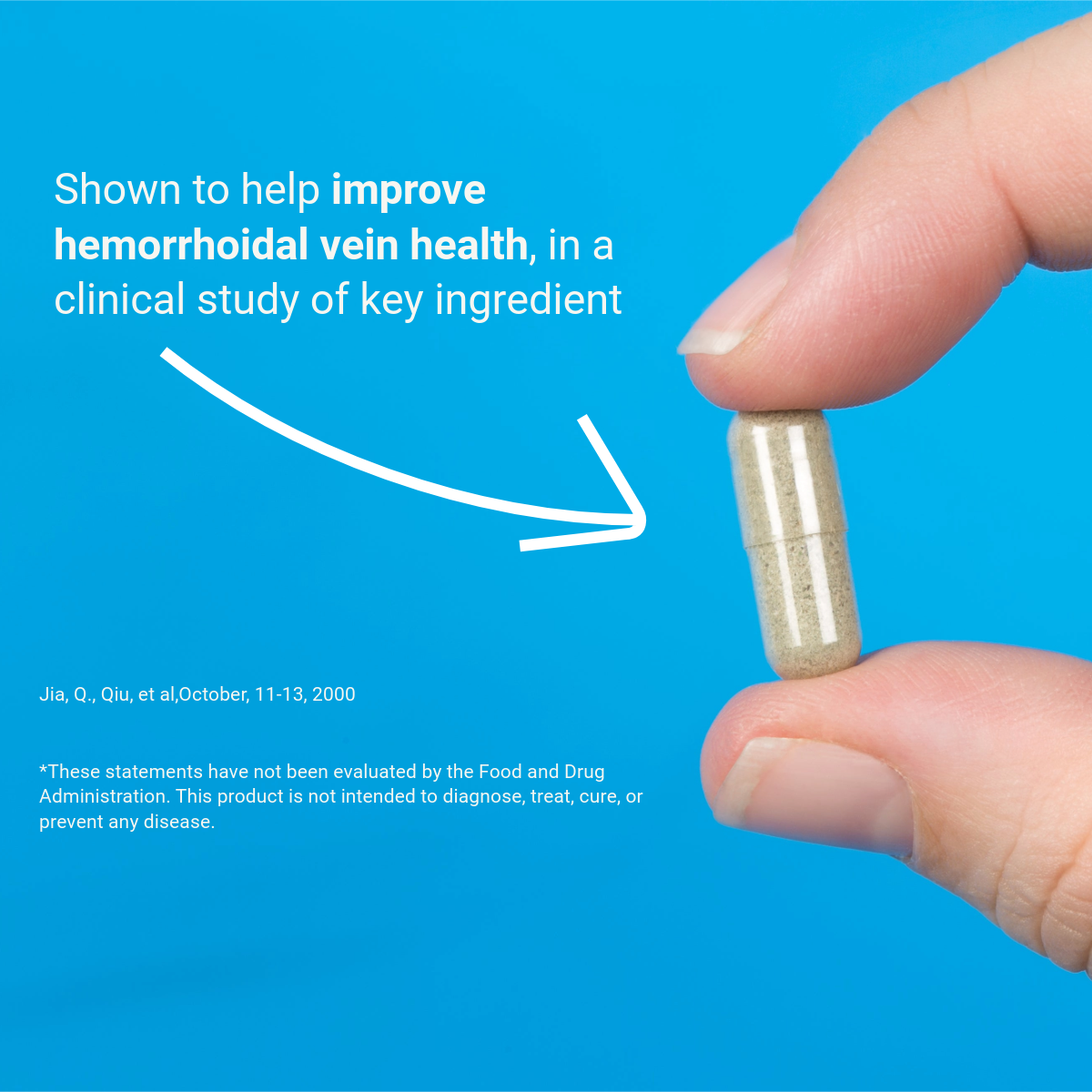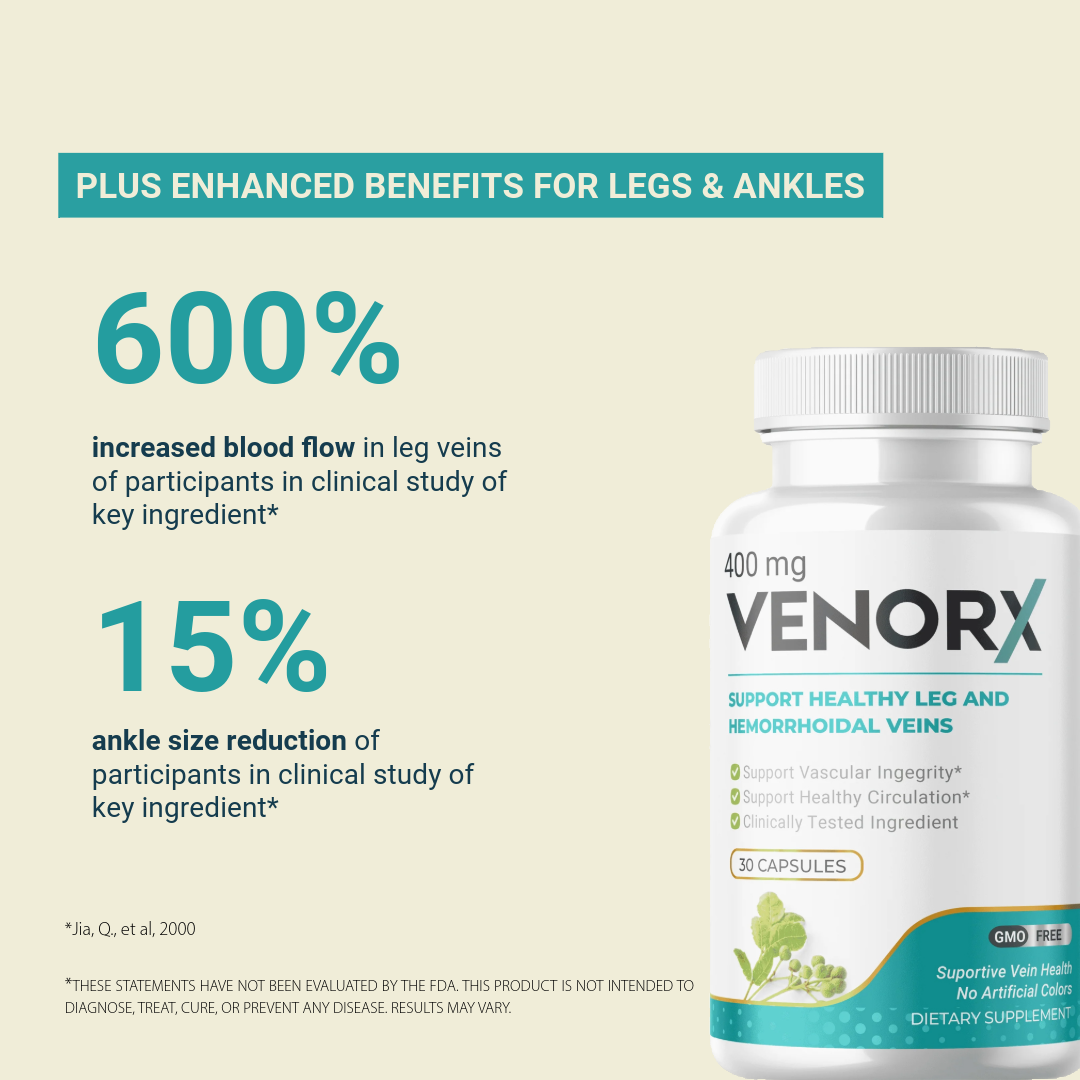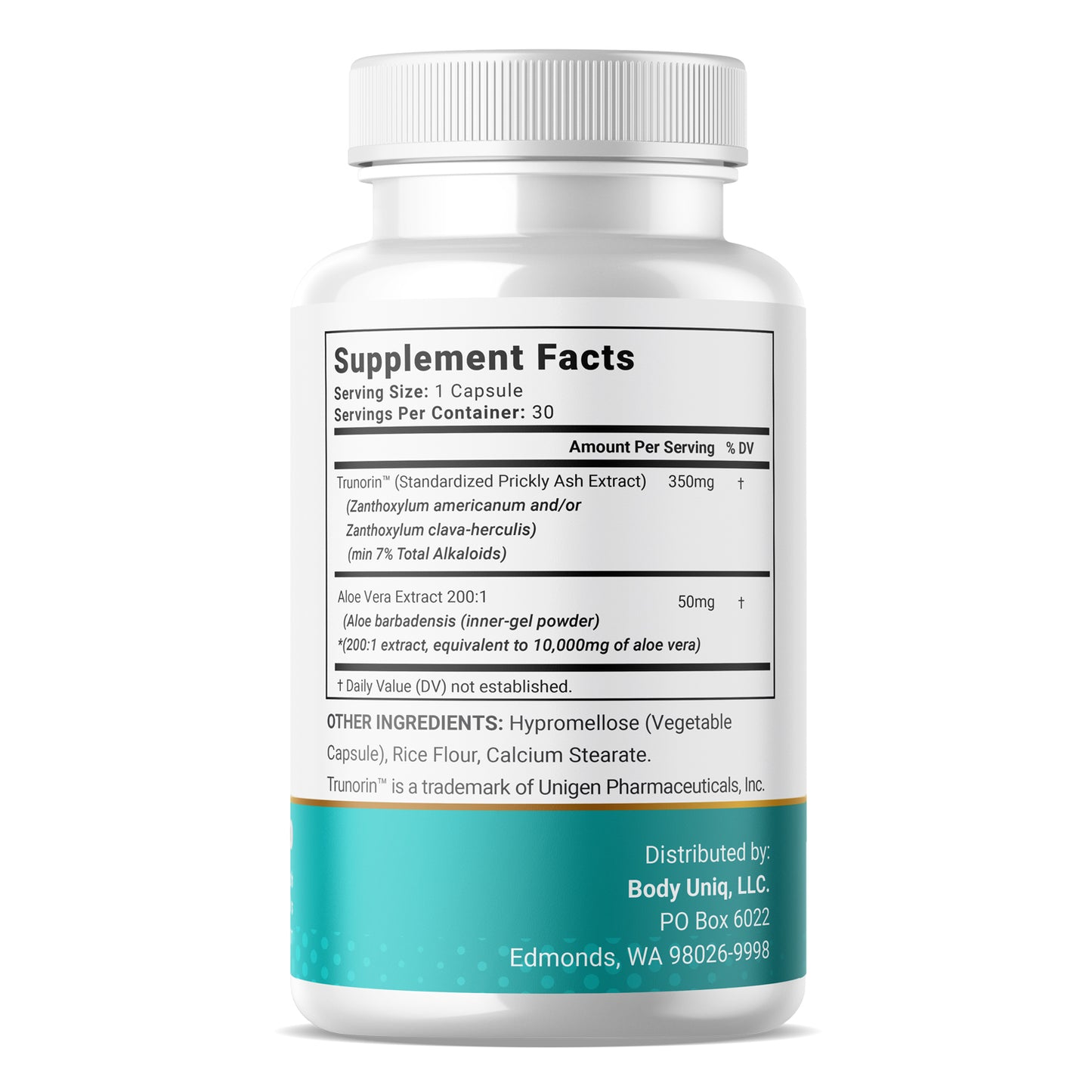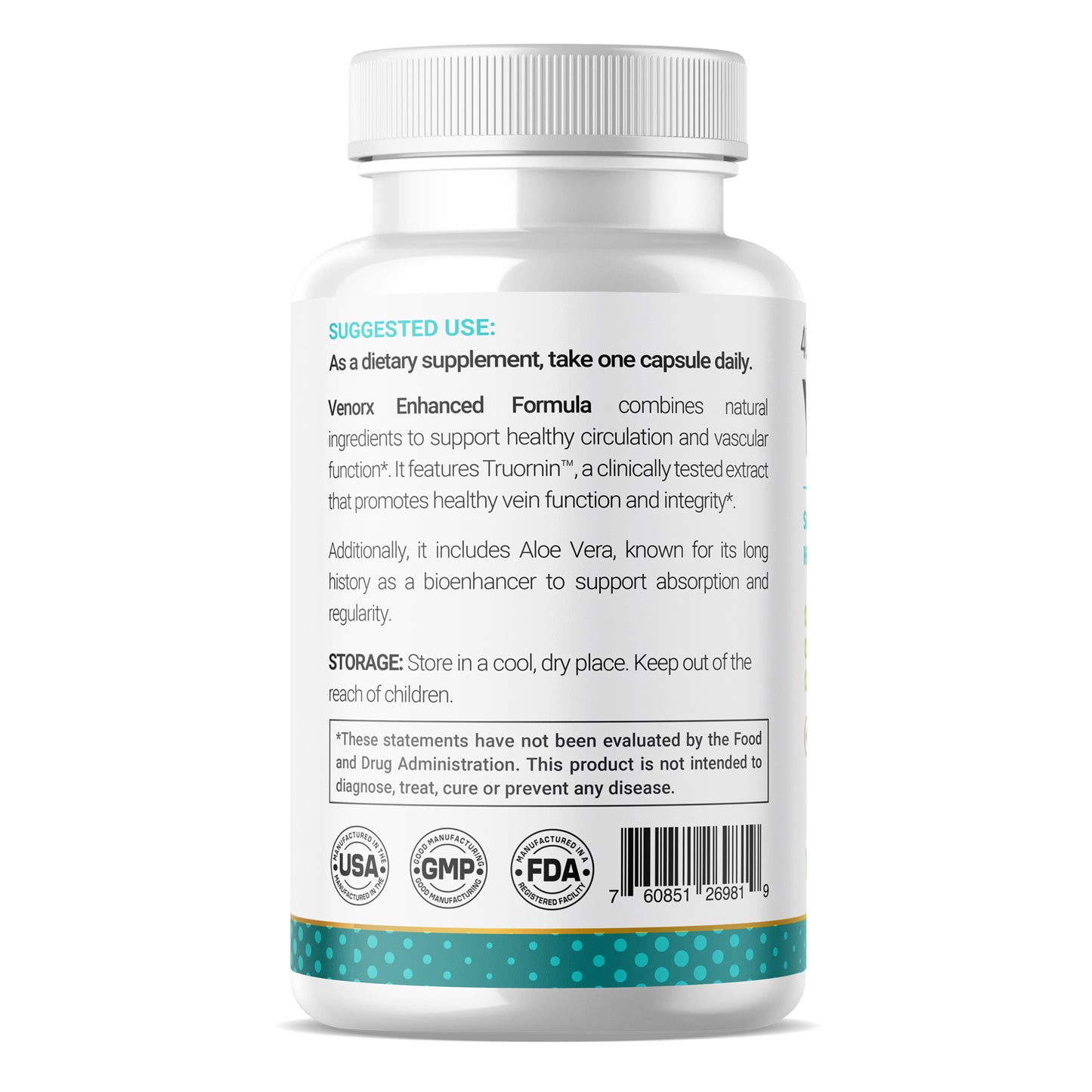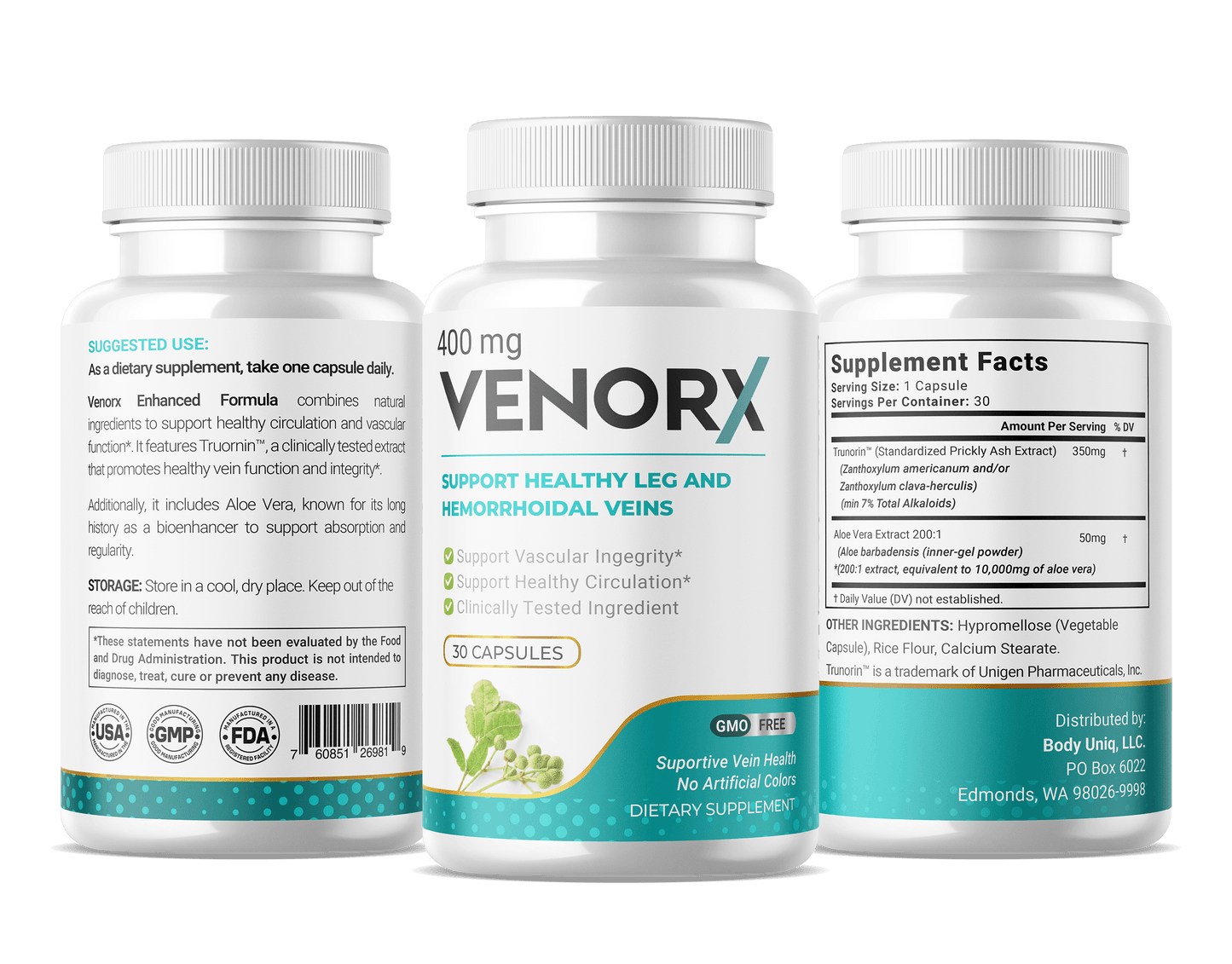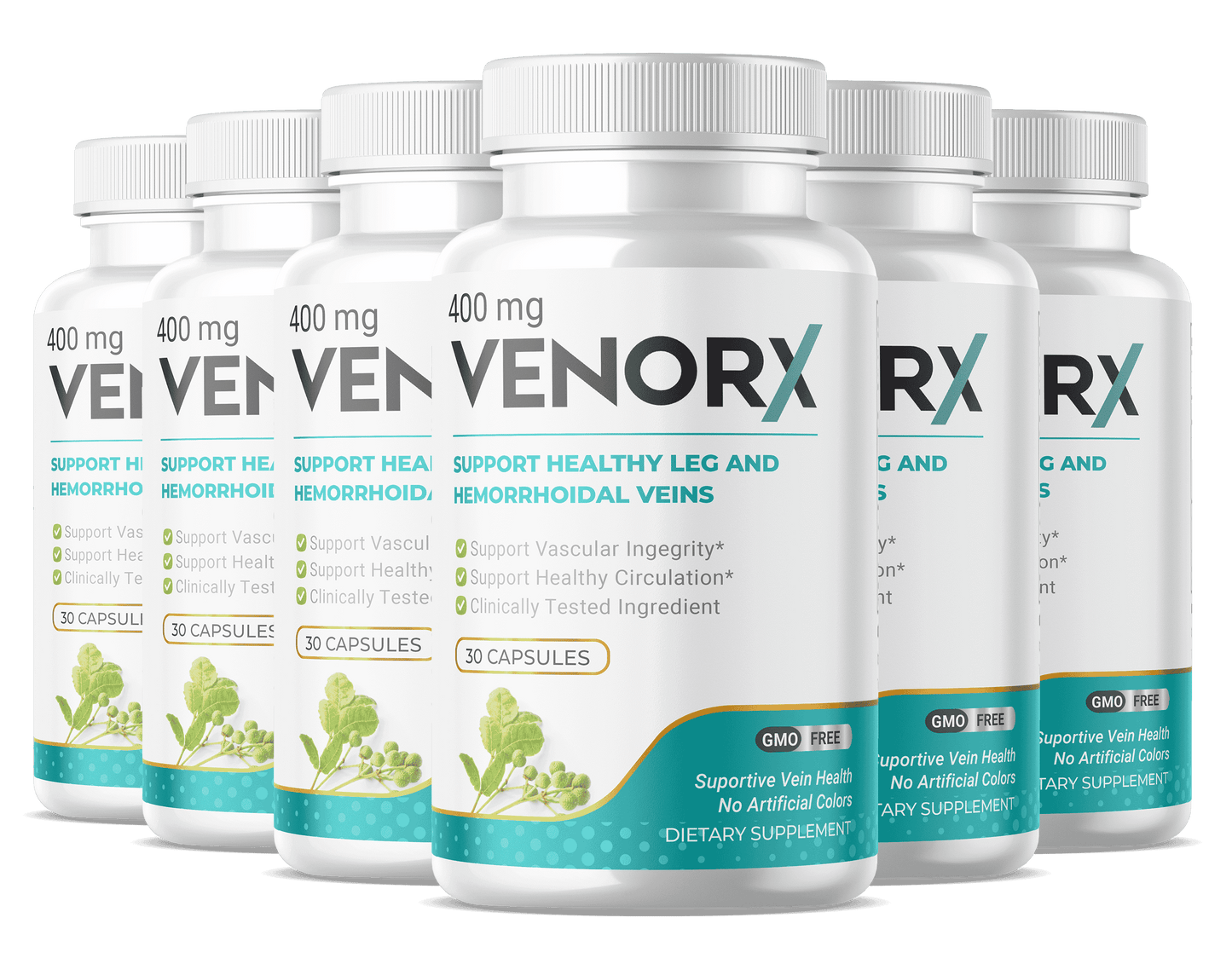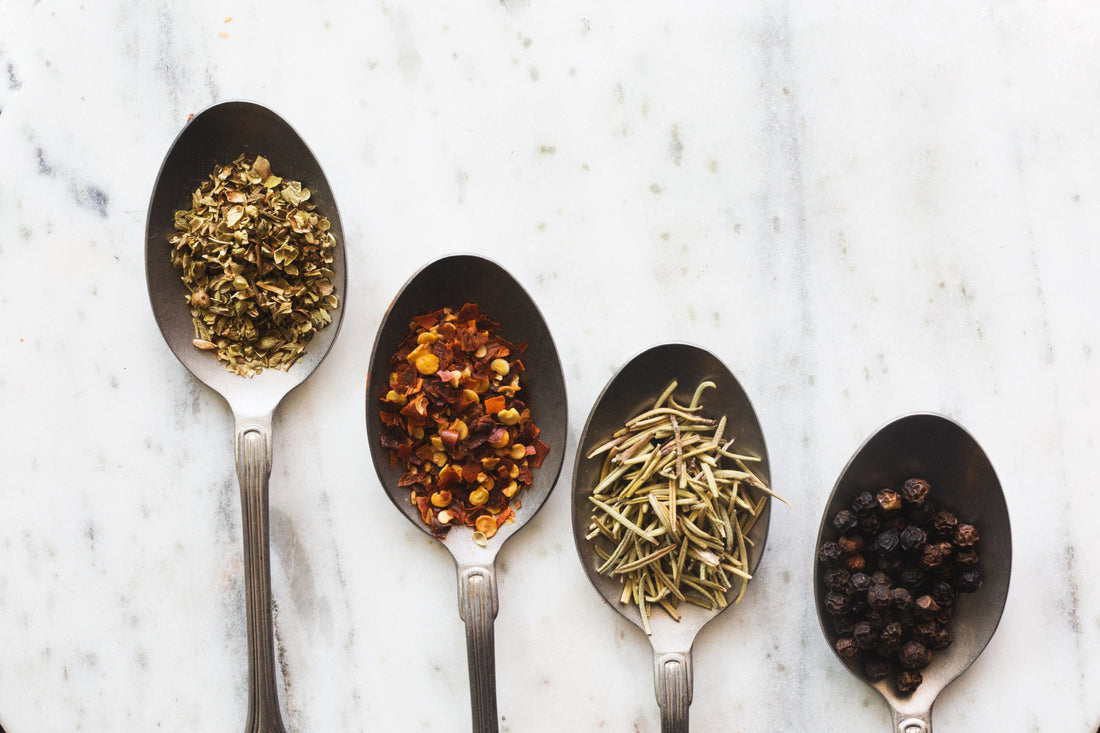
Healthy Eating Habits to Support Optimal Blood Circulation
Share
Good blood circulation support is crucial for overall health, ensuring that your organs and tissues receive the oxygen and nutrients they need while efficiently eliminating waste products. While many factors contribute to circulation, including physical activity and lifestyle choices, what you eat plays a significant role in supporting healthy blood flow. In this blog, we’ll discuss dietary habits that may promote healthy circulation, backed by research and tips you can incorporate into your daily routine.
1. Incorporate Antioxidant-Rich Foods
Antioxidants play a vital role in maintaining the body’s cells and blood vessels to support cardiovascular health. Certain foods are rich in antioxidants, which can help support healthy circulation and promote the integrity of blood vessels.
Foods to include:
- Berries (blueberries, strawberries, raspberries)
- Leafy greens (spinach, kale, arugula)
- Nuts and seeds (walnuts, almonds, flaxseeds)
These foods are not only rich in antioxidants but also in vitamins and minerals that support overall cardiovascular health. Eating a colorful variety of fruits and vegetables can help ensure you're getting a range of antioxidant-rich nutrients.
2. Add Omega-3 Fatty Acids to Your Diet
Omega-3 fatty acids are essential fats that can support healthy circulation. These fats help promote healthy blood vessel function, and overall heart health. Consuming foods rich in omega-3s may also help manage blood pressure, which is important for maintaining optimal circulation.
Foods to include:
- Fatty fish (salmon, mackerel, sardines, tuna)
- Chia seeds
- Flaxseeds
- Walnuts
Omega-3 fatty acids can be particularly beneficial for supporting the smooth functioning of cells that line the blood vessels, ensuring that blood flows freely.
3. Consume Foods High in Nitric Oxide Precursors
Certain foods naturally help increase nitric oxide levels in the body. Nitric oxide is a molecule that helps relax and widen blood vessels, improving blood flow and circulation. By consuming foods rich in nitrates or that support the production of nitric oxide, you can help promote better circulation.
Foods to include:
- Beets
- Leafy greens (such as spinach and arugula)
- Citrus fruits (oranges, lemons, grapefruit)
Beets, in particular, are known for their high nitrate content, which can help boost nitric oxide production. Including these foods in your diet may help dilate blood vessels and support overall circulation.
4. Limit Saturated Fats and Trans Fats
While healthy fats support circulation, excessive intake of unhealthy fats can have the opposite effect. Diets high in saturated fats and trans fats are generally recognized as something to avoid.
Foods to limit:
- Fried foods
- Processed snacks (chips, baked goods)
- Fatty cuts of meat
- Full-fat dairy products
Instead, opt for healthier fat sources such as olive oil, avocado, and fatty fish, which can help support healthy circulation.
5. Stay Hydrated with Water and Herbal Teas
Proper hydration is essential for maintaining healthy circulation. Dehydration can lead to thicker blood, making it harder for blood to flow smoothly through the veins and arteries. Drinking enough water helps keep your blood at the right viscosity, ensuring that it flows freely and efficiently.
Tips:
- Aim to drink at least 8 cups (2 liters) of water per day.
- Consider drinking herbal teas such as ginger, turmeric, or green tea, all of which may offer additional benefits for circulation.
Ginger and turmeric, for example, contain compounds that may help promote healthy blood flow. Green tea has also been shown to support cardiovascular health due to its antioxidant properties.
6. Focus on Fiber-Rich Foods
Eating foods high in fiber can help maintain healthy cholesterol levels and promote heart health, which indirectly supports good circulation. Fiber can help maintain proper blood flow throughout the body.
Foods to include:
- Whole grains (oats, quinoa, brown rice)
- Fruits (apples, pears, berries)
- Vegetables (broccoli, carrots, sweet potatoes)
- Legumes (lentils, beans, chickpeas)
A diet rich in fiber helps support cardiovascular health and aids in maintaining healthy blood pressure levels, both of which are key to good circulation.
7. Moderate Your Salt Intake
High sodium intake can contribute to high blood pressure, which in turn can affect circulation. Reducing the amount of salt you consume can help keep your blood pressure within a healthy range, reducing the strain on your heart and blood vessels.
Tips:
- Limit processed foods, which are often high in sodium.
- Use herbs and spices like garlic, basil, and turmeric for flavor instead of salt.
- Be mindful of hidden sources of sodium in condiments, sauces, and pre-packaged foods.
By moderating your salt intake, you can help support healthy blood pressure and promote optimal circulation.
8. Maintain a Balanced Diet with Plenty of Vitamins and Minerals
Certain vitamins and minerals are particularly important for supporting healthy circulation. For example, vitamin C helps strengthen blood vessels, while magnesium supports healthy blood flow by relaxing the blood vessels. Incorporating a variety of nutrient-rich foods can help ensure you're getting the vitamins and minerals that contribute to good circulation.
Important nutrients and their food sources:
- Vitamin C: Found in citrus fruits, strawberries, bell peppers, and broccoli.
- Magnesium: Found in leafy greens, nuts, seeds, and whole grains.
- Vitamin E: Found in nuts, seeds, and leafy greens.
These nutrients support the health of your blood vessels and contribute to overall cardiovascular health.
Conclusion:
A well-balanced diet rich in antioxidants, omega-3 fatty acids, fiber, and key vitamins and minerals can support optimal blood flow and overall heart health. By incorporating these dietary habits into your daily routine, you can help maintain healthy circulation and reduce the risk of accelerated circulation-related issues.
As always, it’s important to speak with a healthcare provider before making significant changes to your diet, especially if you have pre-existing health conditions. By combining healthy eating with other lifestyle practices, such as regular exercise and stress management, you can support your circulatory health and improve your overall well-being.


